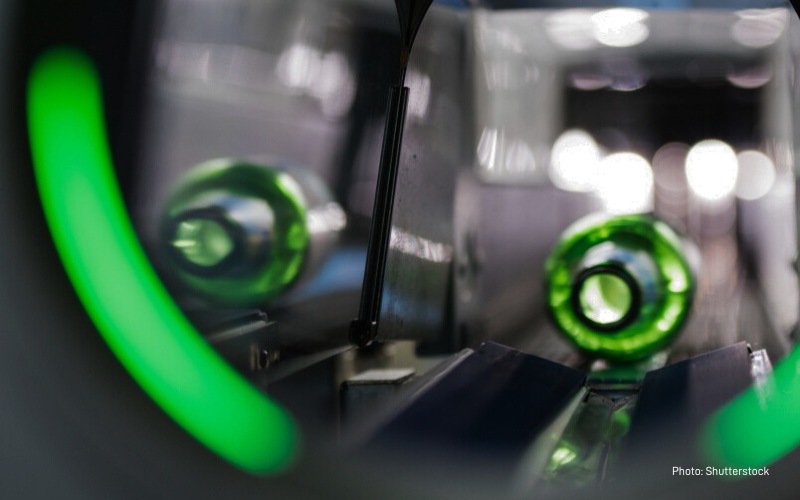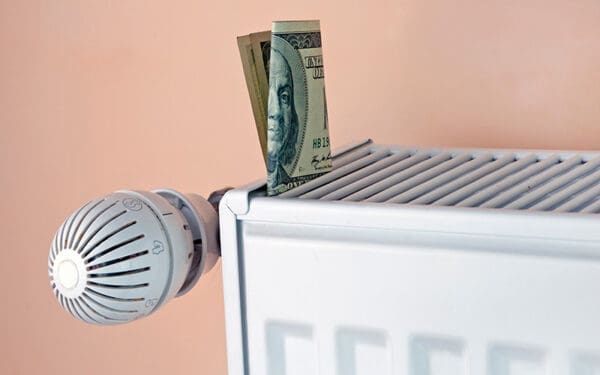
Once a revolutionizing recycling tool, Vermont's bottle bill now covers less than half of the drinks in store shelves. It's time for an update. Photo: Shutterstock.
What’s at Stake?
Across Vermont, empty plastic bottles litter our neighborhoods, parks, and waterways. Globally, beverage companies produce and sell about two trillion drink containers each year. And, unfortunately, many of those drink containers end up as litter or go from recycling bins to landfills and waste incinerators, poisoning our air and water.
One of the best ways to boost the recycling of plastic, glass, and aluminum containers is the bottle return program (a.k.a., bottle bill). Under Vermont’s current bottle bill, we pay a 5-cent deposit for every bottle or can of beer or soda purchased and get the money back when we return the empty container to a grocery store or redemption center.
As a result, the program effectively produces a steady stream of clean, recyclable material, making it the state’s most successful recycling program. But there’s a problem.
When Vermont first passed its bottle bill back in 1973, the program covered most of the drinks in the market – making it a revolutionary tool to slash litter and boost recycling rates. But today, the program covers less than half of the drinks on store shelves. That spells bad news for our communities and environment.
CLF in Action
We know the impact that updating bottle return programs has in tackling the plastic pollution crisis and curbing overall waste. That’s why we joined our partners at VPIRG to push elected officials to update Vermont’s bottle bill. Specifically, we have advocated for more redemption centers and the expansion of the program to include wine and non-carbonated drinks – like iced tea, sports drinks, and juice. With more centers and beverages covered, many more used containers could end up becoming new ones.
We also want our bottle bill to have an annual redemption goal. This would allow the state to determine whether the current 5-cent deposit entices consumers to return their containers – or if we need to adjust it.
The challenge? Though over 80% of Vermonters support an expansion of the bottle bill, Big Beverage claims that we don’t need to update it to improve recycling. Instead, they have championed other solutions that haven’t yielded good results. The reason? Bottle bills cost beverage companies money because they’re held accountable for all the waste they create. So, it’s up to them to fund the cost of running these programs. And companies that manage waste, like Casella, have also opposed the expansion – they want to continue profiting from treating tons of recyclable materials as trash.
Progress on Vermont’s Bottle Bill
Despite this opposition, we have made strides in the right direction. Last year, Vermont legislators took a critical step forward by passing an updated bottle bill. It received tri-partisan support – a testament to our coalition’s efforts to raise awareness about the need and effectiveness of stronger bottle return programs.
But when it was time to sign this bill into law, Governor Scott vetoed it. Vermonters rallied to overturn the veto. But though the bill received overwhelming support in the House, it fell short of the two-thirds majority vote needed in the Senate to make it across the finish line.
What’s Next?
We were so close to getting this bill across the finish line. While legislators cannot reintroduce the updated bottle bill this session, we are committed to getting it passed in the future.
In the meantime, CLF and our partners will continue to educate legislators and industry leaders on the need to get Vermonters the bottle bill we deserve.
Join Us
By supporting a modernized bottle bill, we can drastically slash trash and serve as a model for other states. You helped us push the update to Vermont’s bottle bill this past year. Your continued support is vital. Stay tuned for opportunities to tell your legislators you want them to pass a stronger bottle bill in Vermont.
Bottle return programs incentivize and improve our recycling system. But an ideal future is not one where we get the most money for our bottles. It’s one where we stop our reliance on single-use plastic altogether, by investing in reuse and refill systems. With plastic pollution already a full-blown global crisis, we have zero time to waste.



